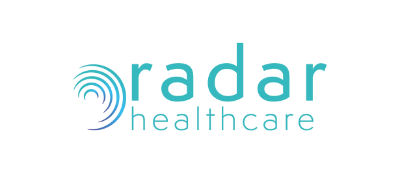The state of health care and adult social care in England 2018/19
14 January 2020
Tags:
The state of health care and adult social care in England 2018/19
The recently published ‘State of Care’ report from the Care Quality Commission (CQC) identified that while the overall quality of care in England is improving slightly, there is still too much variation in the quality of, and access to care.
Throughout the report, examples are identified demonstrating how health and care providers are working together more effectively – often using technology to help – to ensure that people get the care they need when they need it.
“The challenge for providers and the wider local health and social care communities is to consider technology in a broader strategic sense, as an enabler of high-quality care.”
The CQC has long been an advocate of the use of technology within a quality framework and published a series of articles in December 2018 about how technology can support high quality care. However, this more recent report makes it clear that there is still work to be done to ensure ‘joined up thinking’ when embarking on technology projects:
“There is no doubt that good things are happening in many places that are benefitting people, but projects are often piecemeal. We do not yet find enough examples of joined up thinking between commissioners and providers where new technology is central to improving the quality of care for people.”
If we consider barriers to the introduction of technology, health and care providers often cite time and cost as key reasons against an investment in this area however, the report also highlights a move to a more sophisticated awareness of interoperability and cultural changes that are required to support technology adoption.
“The perceived complexity of adopting new technologies can also be a barrier. Our staff have highlighted concerns about the ability of existing IT infrastructures to support new technologies, and whether different systems could ‘talk’ effectively to one another between different organisations.”
It’s simply not enough any more for technology to be used solely to digitise information – there’s a real need for digitalisation; to leverage technology in order to broaden opportunities and change the way we work for the better, which can, in turn, lead to digital transformation within health and care organisations. This is one of the main reasons Radar Healthcare facilitates easy integration with multiple systems through our APIs as well as supporting active directory integration providing the ability for organisations to adopt single sign on (SSO) protocols.
DoLS
One of the key focuses within the ‘State of Care’ report is the use of the Deprivation of Liberty Safeguards legislation.
The Deprivation of Liberty Safeguards (DoLS) legislation is in place to protect people in care homes and hospitals (including hospices) who may need to be deprived of their liberty. The safeguards help to ensure that the correct process is used to protect their human rights and provide necessary care and treatment.
The report highlights how the DoLS process is often “procedural or ‘box-ticking’, with little thought given to how the legislation could be used to properly protect people.”
There are several things that can determine how effectively the DoLS legislation is implemented including:
- Busy workloads and work pressures affecting the time staff have to full consider or prioritise DoLS
- High staff turnover and regular use of agency staff affecting awareness of who has DoLS authorisation
- Training that may not equip staff with the practical skills they need to properly apply the legislation
- Confusion around which piece of legislation to use, such as when the Mental Health Act should be applied and when it should be the MCA and DoLS.
How can Radar Healthcare help?
Radar Healthcare is ideally placed to support the DoLS process, helping standardise practice by ensuring the correct process is followed.
Using customised workflows, your specific DoLS process can be made available and accessible to the entire workforce through Radar Healthcare’s quality and compliance software, ensuring it is approached correctly including:
- Automated notifications to the relevant people i.e. safeguarding leads when the process is initiated
- Prompts to ensure that care plans contain reference to a DoLS application
- Prompts to ensure staff involve a relevant person’s representative and consult friends, families and carers in the DoLS process
Radar Healthcare also supports the need to have a fully trained and compliant workforce – providing records and reminders that they have not only completed the relevant DoLS training but that they understood it and that they always have access to the relevant processes and procedures for refreshing knowledge.
With this in mind, we wholeheartedly support the statement within the State of Care report that innovation (and technology) improves the quality of care and safety and we are constantly working to ensure that our software supports the needs of the health and care industry.
“Innovation is at the heart of some of the high-quality care we see – sometimes this is technological and specialised, or it might be the way in which services use smarter workforce planning to meet people’s needs. We encourage and support innovation that improves the quality of care for people and puts their safety first.”
About Radar Healthcare
Radar Healthcare provides quality and compliance focused software that helps improve the delivery of health and social care, whilst helping you evidence effectiveness and continuous improvement. With functionality from incident and risk management, to audit management and business compliance, Radar Healthcare takes the worry out of CQC compliance. We know you aspire to be outstanding, so we help simplify the regulatory complexities you face, giving you more time to focus on delivering excellent care.
Want to know more?
Get in touch with us today, or book a demo of our software here.







